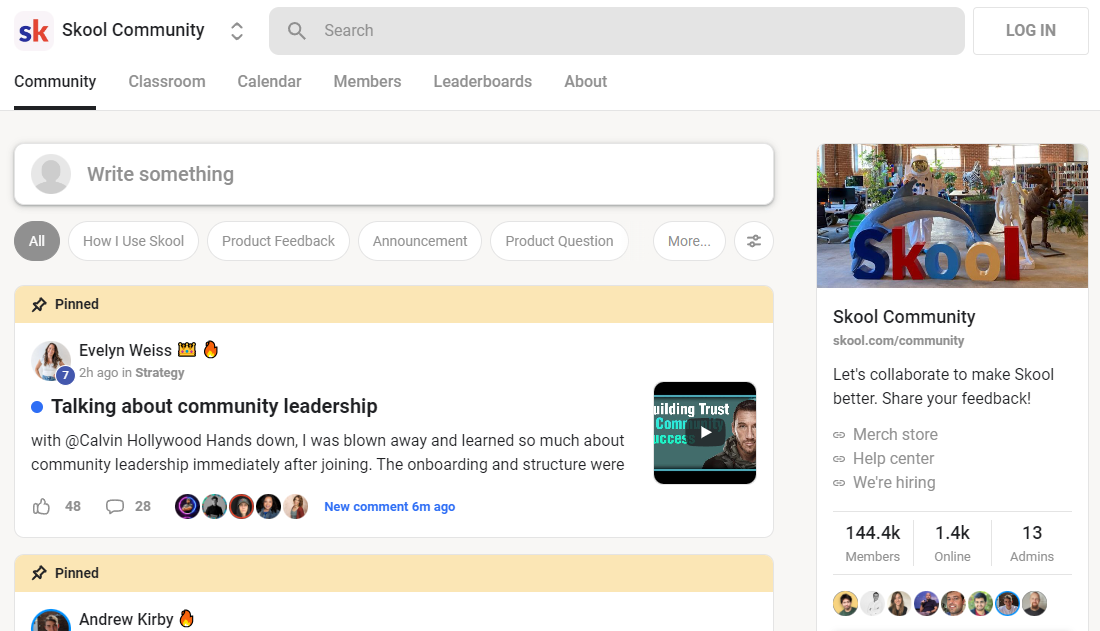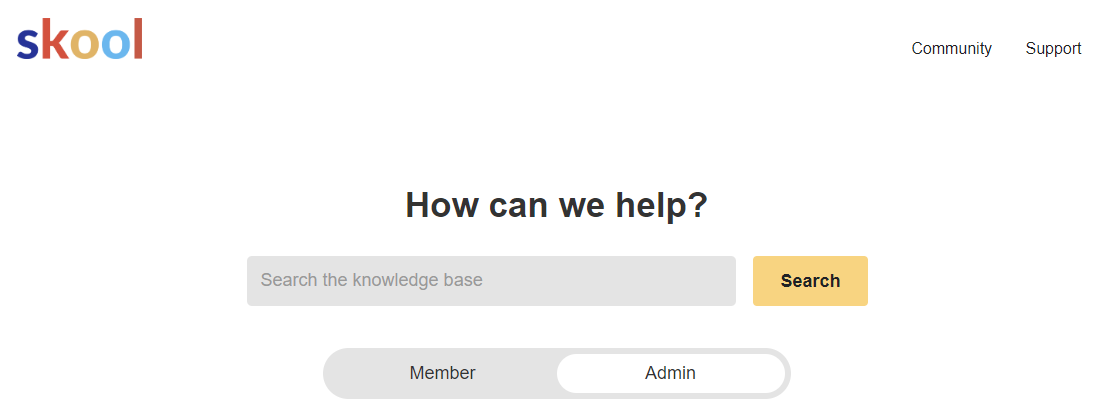Skool supplies best-in-class gamification features that increase involvement. As an example, members can make levels based on their involvement, which unlock course content and various other incentives that even more inspire them.
Formerly, makers needed to make use of various tools for organizing courses, developing areas and handling email advertising. This created a disjointed experience for both designers and their target markets.
Creating Courses
Skool has a simple, easy to use interface and focuses on neighborhood building and course holding over various other features. It allows developers to create a lively neighborhood for their programs and training programs by connecting them with the ideal target market. This likewise helps them keep track of the health and wellness of their material business with the help of a straightforward dashboard.

To begin, an individual can enroll in a cost-free 14-day test of Skool. After that, they can pay $99 a month for the platform to host a single community. There are no other rates alternatives available for the moment. Skool also refines payment and pays makers weekly, yet it does charge a 2.9% deal cost.
One of the special elements of Skool is that it can be utilized to develop interactive training courses. These can include online webinars, group jobs and real-time discussions. These kinds of programs urge engagement and boost course completion prices. Furthermore, Skool’s gamification functions aid to urge neighborhood participation. For example, participants can earn points and unlock program material when they reach particular levels in the neighborhood.
Users can also utilize the social feed on Skool to post updates and interact with others in the neighborhood. The feed resembles a Facebook group, however with a much more regulated method of uploading. This helps to avoid the sort of spam and misuse that takes place on various other social systems.
Taking care of Communities
Skool is a very straightforward platform to utilize, for both participants and admins. Its simplicity is among its primary marketing points– when somebody joins your neighborhood they won’t be confronted with a lot of options or attributes that can hinder their experience and puzzle them.
The system starts off as a private group by default, yet you can easily alter this to open your community to anybody that you intend to belong to it. When you’ve done this you’ll see a social feed like you would on Facebook Groups or WhatsApp (yet without all the scam stuff and swearing).
You can also add a class tab to your neighborhood that you can utilize to share educational material with your participants. This feature is especially useful for neighborhoods that are focused on learning or professional growth as it assists to create an instructional framework and makes it easy for participants to track their progress. In addition, the system has gamification components that permit participants to earn points by suching as blog posts or comments. When they reach a specific level they can unlock sources, such as programs, additionally driving involvement.
The other awesome point is that Skool has a mobile app, similar to Mighty Networks or Slack, so participants can keep up with your area and connect on the move. This is an excellent way to encourage and engage your participants and to help them obtain support from each other when they require it, instead of just turning to you for responses.
Skool Leaderboard
Skool focuses on gamification, enabling users to earn points and badges for their contributions. This inspires participants to involve with the community and add to discussions. Subsequently, this helps them level up and unlock perks like videos and other web content. Admins can also set programs to be opened at certain levels to more drive engagement.

The Skool interface is spick-and-span and user-friendly. Its main features consist of the Community tab, which looks just like a Facebook team feed. Right here, individuals can upload comments and text in addition to upload pictures, web links and videos. Members can likewise watch each others accounts and get in touch with them. In addition, customers can create exclusive groups in the community to go over particular topics.
Another function of Skool is the Classroom tab, which is similar to a YouTube livestream or Zoom conference. Using this, administrators can host trainings and webinars for their students. They can additionally include occasions in the calendar to stay updated on upcoming occasions and Skool Leaderboard.
Nevertheless, some aspects of Skool could use enhancement. For instance, the platform isn’t versatile when it concerns monetization as individuals can not use several rates rates for their training courses and community memberships. Additionally, the tool lacks an e-mail marketing function, which might be a bargain breaker for some program developers. It likewise doesn’t have native video clip organizing, implying that customers require to make use of external platforms like YouTube, Loom and Vimeo for their video clips.
Adding Content
The procedure for including content and communicating with members on Skool is easy and simple. Admins can produce blog posts with message, GIFs, videos and surveys. They can additionally add event calendars to inform community participants of upcoming group Zoom calls or live streams. In addition, they can use Skool’s e-mail broadcast attribute to send a message to the whole neighborhood with a single click. This removes the need for tagging and listing segmentation, which can be difficult.
In addition, Skool’s gamification features can improve involvement and user retention. It encourages members to communicate with the web content on a regular basis by awarding them with different perks. These consist of unlocking program web content, earning points and earning an area on area leaderboards.
While Skool offers a host of beneficial functions for producing and providing online programs, it’s except everybody. The system is best for trainers, experts and other details business owners. However, the price tag can be a barrier for some people seeking to monetize their online material.
Furthermore, the lack of fundamental tiers and a brief free trial might be a deterrent for several. Furthermore, the system’s laser-focus on eLearning can make it less preferable for individuals that wish to market various other digital items. Nevertheless, regardless of these disadvantages, Skool Leaderboard is still a feasible choice for any person looking to develop and monetize online courses.